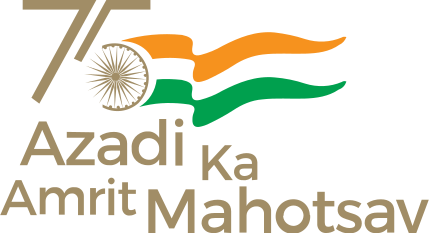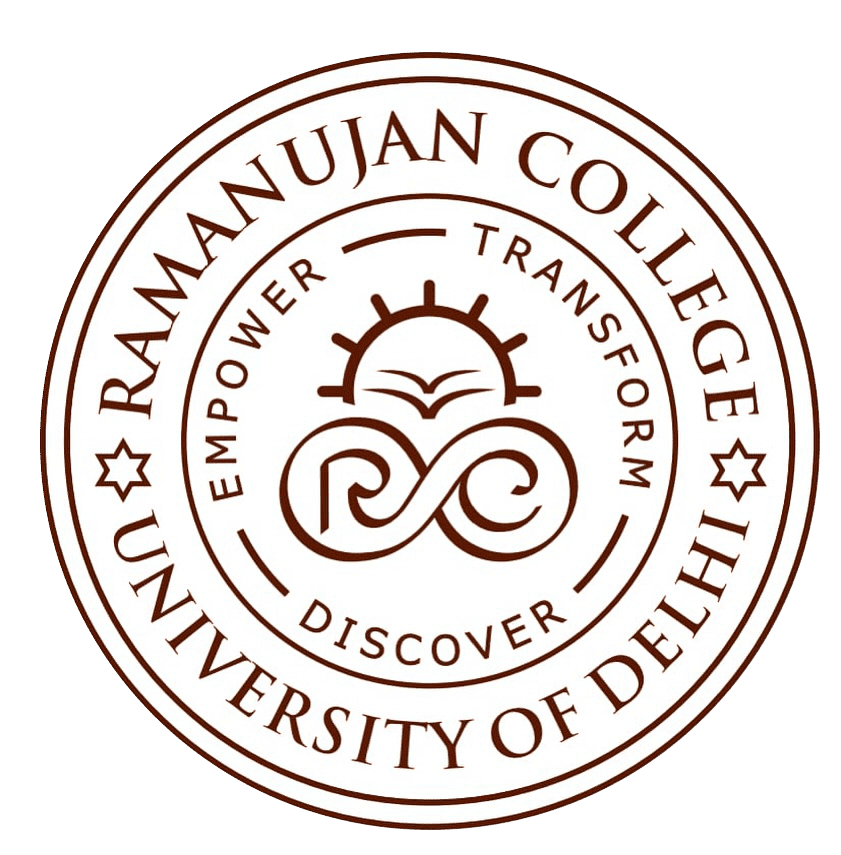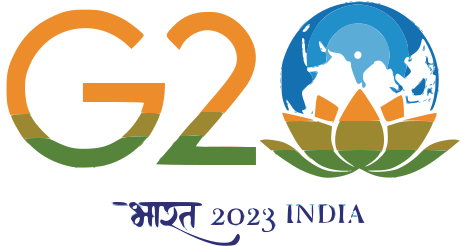Best Practice-I
Title of the Practice: Teaching Learning Centre
Goal
The College has been sanctioned a Teaching Learning Centre (TLC) under the aegis of the Pandit Madan Mohan Malviya National Mission on Teachers and Teaching (PMMMNMTT, MHRD). The Centre runs along the mission objectives and the guidelines set up by the MHRD and has at its core the idea of facilitating teaching learning process to the teachers across the country, especially those located in the remote areas of the country.
The Context
The Ministry of Human Resource Development (MHRD) launched the Pandit Madan Mohan Malaviya National Mission on Teachers and Teaching (PMMMNMTT) in 2017. One of the main objectives of this mission is to facilitate teacher training by constituting Teaching Learning Centers in various institutions of higher education in our country. The Teaching Learning Centers (TLCs) are mandated to promote on a continuous basis the learning of new pedagogical practices, methodology of forming discipline-specific curricula and creating new learning materials (including e-content) for use by the teachers in colleges and postgraduate departments. It is envisioned that the TLCs will accelerate the teaching-learning process by encouraging independent critical and creative thinking and facilitating research for subject-specific growth. The TLCs assist the faculty in capacity building for curriculum designing, scientific assessment and evaluation and the development of innovative academic programs to strengthen the inclusive nature of higher education. The TLCs are also encouraged to reach out to teachers teaching in regionally disadvantaged locations.
The Pandit Madan Mohan Malaviya National Mission emphasizes the need to change the role and workings of a teacher from a mere disseminator of information and knowledge to the one who helps students to develop critical, analytical skills, capabilities to generate information, the ability to reason and to empower themselves through open sources and globally oriented digitised self-learning processes. The focus is not only on ‘what is taught’ but also importantly, to ‘the way it is taught,’ in an effort to develop and enhance individual education, that will eventually go on to define the manner in which the future generations will work and live. The Teaching Learning Centers also offer Faculty Induction Programs (FIPs) for newly recruited faculty and Faculty Development Programs (FDPs) for teachers with experience who wish to update their field of knowledge, expertise and skill with the latest available research, resources and technology. In the FDPs, special emphasis is given to inter and cross-disciplinary methodologies of study.
In the University of Delhi, only 2 institutions received the prestigious opportunity to set up Teaching Learning Centre (TLC) within their premises, one of them being Ramanujan College. The Teaching Learning Center (TLC), Ramanujan College is playing a vital role in prioritising academic excellence through training programs for teachers. The TLC Ramanujan College is helping faculty members to not only undergo specific training programs but also enabled them to become trainers.
The Practice
The TLC, Ramanujan College has organized a total of 20 workshops/Faculty Development Programmes/ Faculty Induction Programmes from April 2018 – March 2019. There were a total of 894 participants during the academic year 2018-19, who attended the FDPs and they were from states of Meghalaya, Jammu & Kashmir, Rajasthan, Madhya Pradesh, Kerala, Tamil Nadu, Uttarakhand, Punjab, Telangana, Andhra Pradesh, Assam, Uttar Pradesh & West Bengal. The TLC invited more than 250 resource persons of repute and academic excellence for these programmes.
TLC, Ramanujan College is equipped with a modern state of art auditorium, conference rooms and ICT enabled class rooms. The training programmes through TLC Ramanujan College are based on strong pedagogies, rigorous practices and robust methodologies. This ensures and enriches the teaching quality of the participants and helps them in becoming successful teachers, trainers and guide. We devise various means to ensure healthy learning atmosphere and a high average attendance of participants.
In our constant endeavour to make the participants own the programme and ensure a high level of engagement and participation, daily quiz/assignments are conducted. This helps the participant to review the topics already discussed. Quizzes help the organisers to review the engagement levels of the participants. The resource persons are involved in designing the quiz questions to ensure utmost seriousness. There is a regular follow up with the participants through the creation of a Google Group/Classroom for each project initiated; regular interaction with the participants about how they are implementing the learning assimilated during the programs/projects. The ICT component is also included in every programme of the centre. The MHRD has suggested a wide range of 12 modules which are included the FIPs conducted by our centre.
Detailed List of Programmes by TLC (2018-19)
Evidence of Success
All the FDPs were successful and had a positive response from all the participants, specially the one month faculty induction programmes through which the newly appointed teachers could develop new and unique skills for making their classroom teaching more effective. They knew about how to reduce stress while teaching and at the same time to remain happy while teaching. All the FDPs covered a wide range of topics spanning from the use of ICT in education, using and introducing the participants to new softwares like SPSS, LaTeX etc., conducting research in mathematical sciences, social sciences and making use of statistical tools. The TLC (Ramanujan College) in these 20 FDPs has tried to cover every aspect whether in the field of technology, education, happiness, etc.
All the Participants agreed to the fact that all the FDP sessions were lively & interactive, the concepts which were being taught were something new to them which they earlier were not exposed to, and a majority of them agreed that their overall knowledge level had increased from the FDPs and attending these programs was really beneficial for their further research & policies.
Problems encountered and resources required
Since these TLC programmes were being organised and conducted by the members of the college faculty, it was a challenge to balance time between the teaching workload and the TLC programmes. This meant many teachers were overworked. This included undertaking field surveys for providing logistical support to the participants. For the conceptualisation of events, we conducted numerous pre-programme meetings with the experts.
In the FDP there was participation from across the country. In these programmes where there were large number of participants, the knowledge level was not uniform. Therefore, there was a challenge to create academic content that would suit everybody’s knowledge level in the stipulated time period.
Scheduling of the one-month FIP considering the convenience of the faculty members across the country is difficult. Examination, admissions, and vacation periods differ regionally and institutionally.
—————————————————————————————————————————
Best Practice-II
Title of the Practice: School of Happiness
Goal
The ‘School of Happiness’ was ceremoniously launched at Ramanujan College on 27th July 2018 by Shri Sanjay Mishra (the famous Bollywood actor). A one of its kind initiative, the school focuses on developing long term happiness and wellbeing of teachers and students to improve their efficiency and overcome the stressful life.
The Context
The Delhi government with an aim to to train the young minds to make them happy, confident and content human beings and for developing their personality has launched a new initiative that introduces the ‘Happiness curriculum’ in schools. The new curriculum has been introduced in over 1,000 Delhi government schools between Nursery and Class 8. The students will have a Happiness period which will be for a duration of 45 minutes. Taking inspiration from this initiative, the School of Happiness is launched in Ramanujan College to promote the role of ‘Centre for Ethics and Values’ for long term happiness and wellbeing of the teachers and the taught.
The Practice
The school has conducted various workshops and talks on the theme.
- A workshop on Happiness @ Teaching in collaboration with the Teaching Learning Centre (MHRD), Ramanujan College was organized on 15-16 September 2018 to train the minds to be more focused, to see with clarity the role and responsibility of a teacher and to have ethical commitment for creativity and learning. Prof. Girishwar Misra graced the occasion as Chief Guest and also released the School of Happiness Newsletter along with the Guest of Honor Prof. Annpurna Nautiyal, Vice Chancellor, Garhwal University. The primary objective of the workshop is to promote an exchange of opinions about the challenges and opportunities in the workplace and how happiness which dismisses seclusion and includes camaraderie, ethicality, spirituality, yoga and meditation can be useful as a medium for leading a healthy, glorious and balanced life for a teacher.
- Organized a talk by Professor Huber Hutchin Robinson (HH Hanumatpresaka Swami), University of California, on “Psychology of Happiness” in association with RamComm and Equal Opportunity Cell of Ramanujan College on 18 February 2019.
- An enthralling and fun-filled workshop on ‘Work is Worship’ was conducted on 17 October 2018 in the College for the non-teaching staff. This one of a kind of a workshop was especially dedicated to the non teaching staff and in particular for the new recruits. The sole purpose of conducting such an event was to understand and discuss the true meaning of “Work is Worship” and how to inculcate its value in our day to day lives.
- A “Happier Day” was celebrated in association with Tatva-The Eco Club and Equal Opportunity Cell on 1 November 2018 with the objective to learn the ways by which student and teaching community can keep themselves more stable, calm and happy.
Recently, it started a free 6–month certificate course which is open to all the students of University of Delhi. The course tries to imbibe the values of community service, yoga and meditation, and activities which would improve the personality, life skills and communication of the students. It intends to bring lifestyle changes by largely focusing on the significance of acquiring practical knowledge of Vedas and Spirituality.
Evidence of Success
The events conducted by the School of Happiness have always received overwhelming response, participation and encouraging feedback. The two-day workshop on Happiness @ Teaching was attended by 120 participants from all over India while the Happier Day had a participation of 120 students.
Problems encountered and resources required
Happiness is an abstract yet most sought after thing in human world. Every person have their own definition and perception of happiness. So, to design a structured curriculum, with readings & study material, carry out assessment for a “Happiness” course is a challenge in itself as it is very open ended, subject to different interpretations – no one of which are right or wrong, and more experiential than theoretical.
Another challenge & requirement is to find resource persons, faculty members who have great philosophical depth, profound personal experience, and who can play the role of a facilitator than an instructor.
The final major challenge is to make students see merit in the course. Today’s young generation are looking for answers beyond what they know and definitely need more clarity and support given the rising instances of stress, depression, mental illness and suicides. But they are more drawn towards skill oriented courses which can provide them immediate benefit in their career.
—————————————————————————————————————————
Best Practice-III
Title of the Practice: National Resource Centre
Goal
The Ministry of Human Resource Development (MHRD) notified Ramanujan College as the National Resource Centre (NRC) for three extremely pertinent and interrelated disciplines, namely, Human Rights, Environment and Ethics. The NRC’s role is to conceptualise, create and disseminate contemporary knowledge in the field of study. This initiative is taken by MHRD under the ambit of the Annual Refresher Programme in Teaching (ARPIT). Three interrelated modules on the said theme need to be prepared.
The Context
Massive Open Online Courses (MOOCs) are rapidly gaining popularity not only amongst students but also among faculty members because it helps them in their professional development and also gives them the flexibility to study as per their own convenience and time. Online courses serve as a bridge between the teachers and the learners and fill the gap for the off-site learners. It is a great initiative to provide blended learning for millions of students and teachers across the globe. MOOCs create the opportunity for sharing the ideas and knowledge and also helps improve lifelong learning skills by providing easy access to global resources. MOOCs have truly revamped the teaching pedagogy by using technology as a tool to design the new pavement for academic growth. Keeping this in mind, the Ministry of Human Resource Development has launched a major and unique initiative of online professional development of 1.5 million higher education faculty using the MOOCs platform SWAYAM. In the first phase, 75 discipline-specific National Resource Centres have been identified (in which Ramanujan College is one of them) which are tasked to prepare online training material with focus on latest developments in the discipline, new & emerging trends, pedagogical improvements and methodologies for transacting revised curriculum. Under this initiative, all in-service teachers, irrespective of their subject and seniority will have an enabling opportunity to keep abreast of the latest developments in their disciplines through the technology based online refresher course.
The Practice
The Module on Human Rights incorporates its relationship with development and environment (migration induced due to development projects and climate change), rights of minorities (manual scavengers, differently able people and sexual minorities), gender violence, surrogacy, security laws, citizenship rights, rights of people living at borders and technology.
The Module on Environment focuses on the real time problems related to biodiversity, climate change and over consumption of natural resources in order to obtain a sustainable environment. It will employ use of modern technology and recent trends in research in restoring biodiversity for environmental sustainability and management of degraded ecosystems. It will examine how formulation and implementation of green policies helps in combating environmental threats.
The Module on Ethics encompasses ethical foundation and disposition, in which the learner will experience the importance of ethics in the contemporary society and how it profoundly impacts the lives of the people. In addition to this, it will also discuss various practical issues in applying ethics in real life situations. The Module will investigate into Role of Ethics in Teaching, Gandhian Ethics, Existential Ethics, Environmental Ethics, Ethics of Governance, Business Ethics, Ethics of Technology, medical Ethics and the Question of Choice.
Overall, the Courses incorporates the recent developments and intends to upgrade the knowledge of the academicians, practitioners and individuals by highlighting future challenges and prospects in the respective discipline. It endeavours to sensitize the participants towards evolving into responsible and empathetic citizens, consequently, bringing creativity and happiness in their lives. A total of 37 lectures were recorded on the recent themes and developments in the field, followed by vibrant panel discussions.
Evidence of Success
743 participants registered and participated in the course and excellent reviews were recorded from the participants. We have also now started creating our own e-learning video resources and have started providing consultancy services for recording and creating video resources to other colleges and departments of University of Delhi.
Problems encountered and resources required
Ramanujan College was selected a National Resource Centre to prepare MOOCs on Human Rights, Ethics and Environment. The idea of facilitating educational content through lively lectures and interactive flowcharts was a challenge. The notion of learning online was not entirely new to us, but it required a skillful blend of knowledge and technical support. In a succession of few months, and with the provision of able, technical and know-how support, we managed to create a state of the art online interactive and engaging educational content.


